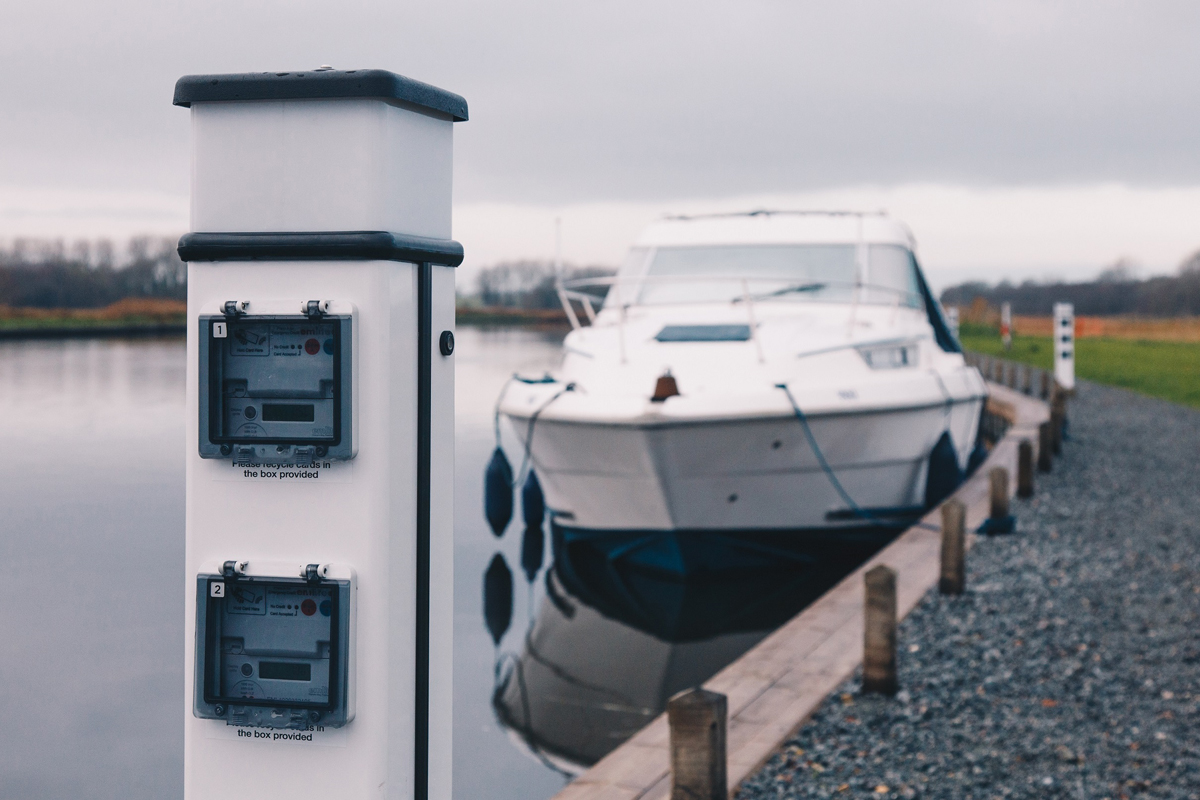Researchers map Broads’ carbon footprint
In recognition of the urgent action needed to address climate change the Broads Authority has commissioned research to estimate the carbon footprint of Broads’ residents, visitors and businesses.

The Broads Authority’s work on climate change spans its entire operations, from decarbonising its works programme, to helping local farmers lock carbon into soils and working with local authority partners to actively manage the impacts of climate change within the Broads area.
Alongside other UK National Parks, the Authority commissioned a survey from Lancaster University-based Small World Consulting Ltd, to estimate the carbon footprint of the Broads and inform how to reduce the Broads’ Area footprint.
The research measures both the emissions from the Broads (from land use, resident and business activity) and calculates emissions by visitors traveling to and from the Broads. It produced a set of recommendations for how the Broads can transition to a low-carbon economy by 2050.
In 2019 the Authority pledged to make its own operations carbon neutral by 2030, and to aim for a zero-carbon target by 2040. This means the Authority would need to reduce its carbon emissions by half by the year 2030.
This presents a significant challenge both for the Authority, its partners and local communities, and only by working together will these goals be achieved.
The Authority works on several partnership projects with local and district councils, the tourism industry and the wider public to reduce carbon emissions. These include:
- Broadland Futures Initiative – a partnership to plan for flood risk management that better copes with our changing climate and rising sea level.
- Electrifying the Broads – working with boatyards on initiatives to transition the Hire Boat fleet to electric and zero-emission propulsion
- The Norfolk and Suffolk Climate Change Partnerships on issues such reduce greenhouse gas emissions from transport and nature restoration projects.
- Broads Peat Partnership, working with farmers and landowners to help develop nature and climate restoration within the Broads. Restoring nature which provide carbon storage, clean air and water, flooding protection and biodiversity.
- CANAPE project - an international peatland restoration partnership to reduce the CO2 emissions of wetlands in areas similar to the Broads.
The Authority’s actions to cut its own carbon footprint are already making a difference to its largest sources of emissions; vehicle and equipment use. Using Hydrotreated Vegetable Oil in place of diesel has reduced these emissions significantly, alongside replacing older vehicles and vessel engines with electric alternatives when they come to the end of their natural lives.
Between 2019/20 and 2021/22 the Authority’s estimated carbon footprint has fallen by 21%. This is as a result of purchasing electric vehicles and replacing diesel, a shift to meetings being held remotely, which led to a reduction in the use of pool vehicles and switching to renewable electricity tariffs.
There are electric charging points for vessels at nineteen BA 24-hour moorings, plans for additional charging points at Great Yarmouth and plans to increase the number of sites with vehicle electric-charging points.
As yet zero-emission heavy equipment, such as the excavators used for river management, are not available.
The UK Government aims to phase out the production of new domestic vessels that are not “net-zero capable” by 2025. The ‘Electrifying the Broads’ (ETB) partnership group is researching how the transition to cleaner, affordable fuels and propulsion could take place in the Broads.
Broads Authority Chief Executive, John Packman, said of the report,
“We are developing ambitious projects to address transport, boating and farming emissions in the Broads.
“To have a far-reaching impact, we are working with partners at the Norfolk Climate Change Partnership, the Suffolk Climate Change Partnership, as well as local MPs and Councils, who all agree to increase efforts to ensure that we achieve Net-Zero.”
The report suggests that one of the most significant actions visitors to the Broads can do to reduce their emissions is to take public transport, where possible. Taking the train from Norwich to Wroxham to hire a dayboat cuts the CO2 produced during the journey by 80%.
To help implement the Small World recommendations, the Authority has submitted a bid to the Government’s ‘Pioneer Places’ fund to find ways to overcome the barriers to delivering its net zero targets, such as expensive technology and a lack of accessible places for electric charging points.
The Authority presented the report to the Broads Authority Committee on 2 December to ask members to consider which areas to prioritise. Members adopted a set of actions for the Authority to work on next year, including electrification of boating, a new sustainable tourism strategy, installing vehicle charging points, and continuing to work with the Broads Peat Partnership to restore peatlands across the Broads.
For individuals who want to reduce their carbon footprint when visiting the Broads, there is a low-cost bus fare on offer of £2 (Jan – Mar 2023). Opting for an electric day boat will save 15Kg of CO2 / day (compared to diesel) and choosing a local cask-ale in the pub, over an imported lager can save 2kg of CO2 per pint.
The full report can be read online on the Broads Authority website.
Read more about climate change and the Electrifying the Broads project, and read more about the capped bus fare.
Friday 16 December 2022

